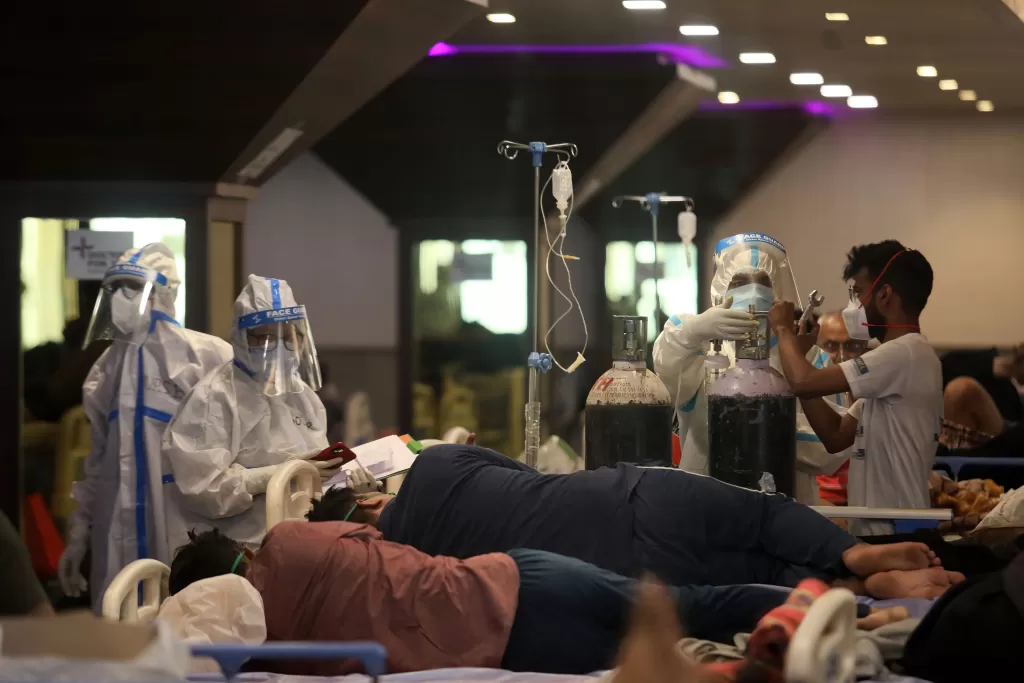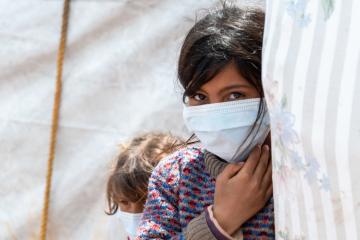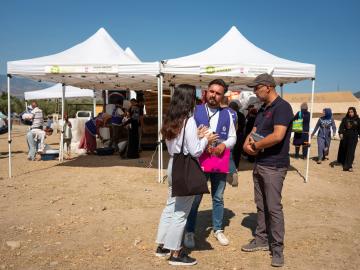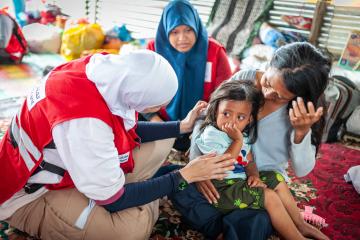
DEC Coronavirus Appeal funding work in eight countries
Donations to our appeal are now funding work in Afghanistan, DR Congo, India, Somalia, South Sudan, Syria, Yemen and the Rohingya refugee camps in Bangladesh.
9 June 2021
Donations to our appeal are now funding work in Afghanistan, DR Congo, India, Somalia, South Sudan, Syria, Yemen and the Rohingya refugee camps in Bangladesh.

A child stands near her family's shelter in a displacement camp in Marib, Yemen. Rabie Al-Zuhairy/CARE

Health workers tend to coronavirus patients in a makeshift ward set up in a banquet hall in Delhi, India. Image: Naveen Sharma/SOPA Images/LightRocket via Getty Images

An Action Against Hunger volunteer prepares isolation kits in Juba, South Sudan, where food insecurity is rising. Image: Peter Caton/Action Against Hunger


